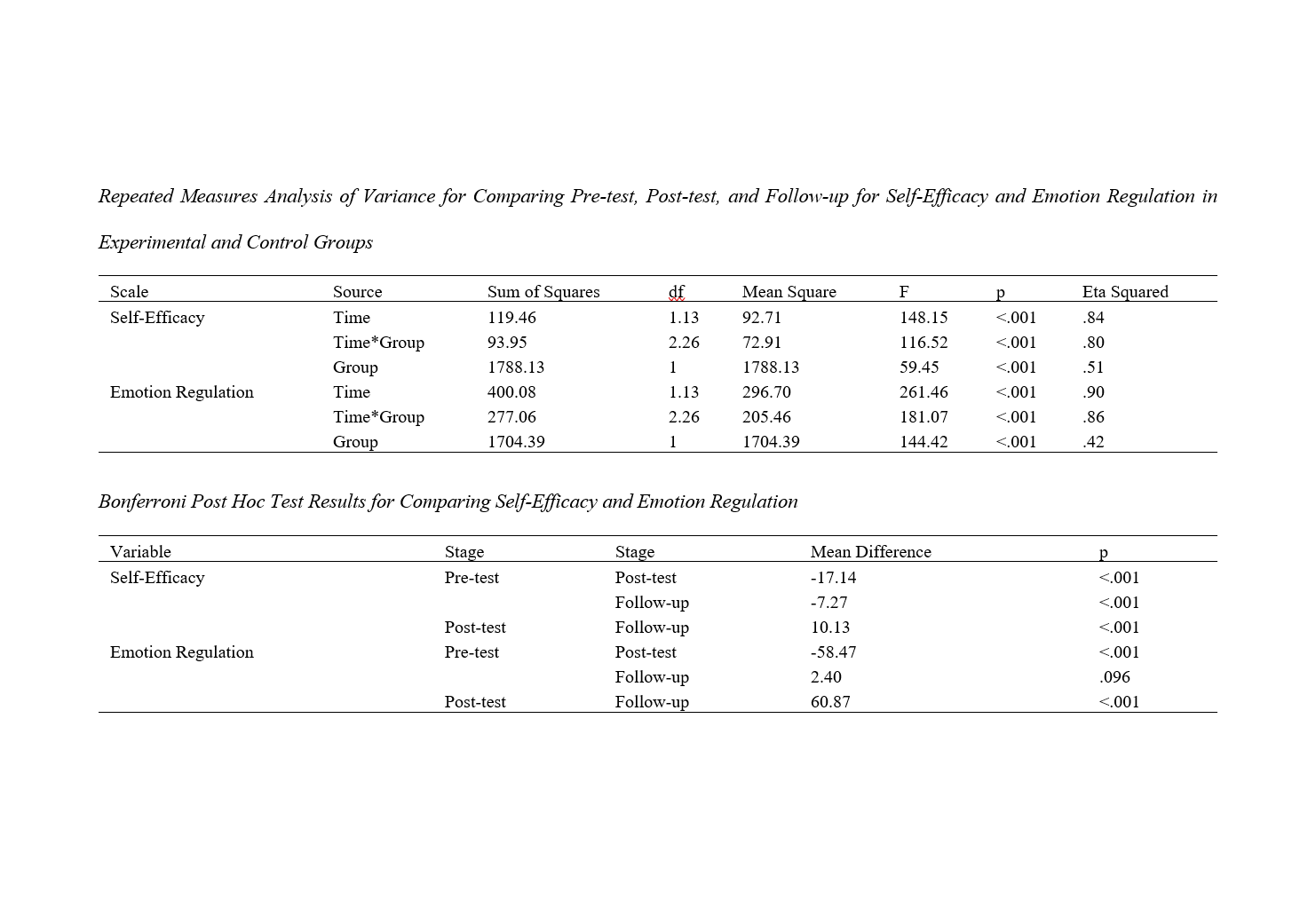The Effectiveness of Cognitive-Behavioral Therapy on Self-Efficacy and Emotion Regulation in HIV-Positive Patients
Keywords:
Cognitive-behavioral therapy, self-efficacy, emotion regulation, HIVAbstract
Objective: AIDS, or Acquired Immunodeficiency Syndrome, is a chronic and widespread disease that, with its high mortality rate, is distinctly different from other diseases. The present study aimed to investigate the effect of cognitive-behavioral therapy (CBT) on self-efficacy and emotion regulation in HIV-positive patients.
Methods and Materials: In a quasi-experimental method with a pre-test, post-test, and follow-up design with a control group, 30 HIV-positive patients receiving treatment at the Imam Khomeini Hospital in Tehran were non-randomly and conveniently selected and then randomly assigned to two groups (experimental and control groups, 15 patients each). Prior to the commencement of therapeutic interventions, participants from both groups completed the Sherer Self-Efficacy Scale (1982) and the Gratz and Roemer Difficulties in Emotion Regulation Scale (2004). The experimental group underwent 12 sessions of cognitive-behavioral therapy, whereas the control group did not receive any intervention during this period. Both groups were post-tested, and after a three-month period, they completed the research questionnaires again (three-month follow-up). The research data were analyzed using repeated measures analysis of variance and SPSS.22 software.
Findings: The results indicated that cognitive-behavioral therapy significantly improved self-efficacy (F=59.45, P<0.001) and emotion regulation (F=144.42, P<0.001) in HIV-positive patients.
Conclusion: It can be concluded that cognitive-behavioral therapy can lead to improvements in self-efficacy and emotion regulation in HIV-positive patients.
Downloads

Downloads
Additional Files
Published
Submitted
Revised
Accepted
Issue
Section
License

This work is licensed under a Creative Commons Attribution-NonCommercial 4.0 International License.








